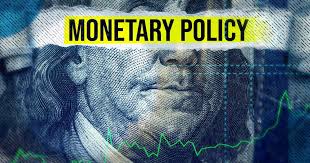
Breaking News
 Owen Report - 10-16-2025 - Gaza Peace Deal Hangs In Balance While Trump Negotiates Peace With Russia
Owen Report - 10-16-2025 - Gaza Peace Deal Hangs In Balance While Trump Negotiates Peace With Russia
 Inflation: Slowly the Middle-Class Dies
Inflation: Slowly the Middle-Class Dies
 The LIES About The Dentist They Don't Want You To Know
The LIES About The Dentist They Don't Want You To Know
Top Tech News
 3D Printed Aluminum Alloy Sets Strength Record on Path to Lighter Aircraft Systems
3D Printed Aluminum Alloy Sets Strength Record on Path to Lighter Aircraft Systems
 Big Brother just got an upgrade.
Big Brother just got an upgrade.
SEMI-NEWS/SEMI-SATIRE: October 12, 2025 Edition
 Stem Cell Breakthrough for People with Parkinson's
Stem Cell Breakthrough for People with Parkinson's
 Linux Will Work For You. Time to Dump Windows 10. And Don't Bother with Windows 11
Linux Will Work For You. Time to Dump Windows 10. And Don't Bother with Windows 11
 XAI Using $18 Billion to Get 300,000 More Nvidia B200 Chips
XAI Using $18 Billion to Get 300,000 More Nvidia B200 Chips
 Immortal Monkeys? Not Quite, But Scientists Just Reversed Aging With 'Super' Stem Cells
Immortal Monkeys? Not Quite, But Scientists Just Reversed Aging With 'Super' Stem Cells
 ICE To Buy Tool That Tracks Locations Of Hundreds Of Millions Of Phones Every Day
ICE To Buy Tool That Tracks Locations Of Hundreds Of Millions Of Phones Every Day
 Yixiang 16kWh Battery For $1,920!? New Design!
Yixiang 16kWh Battery For $1,920!? New Design!
 Find a COMPATIBLE Linux Computer for $200+: Roadmap to Linux. Part 1
Find a COMPATIBLE Linux Computer for $200+: Roadmap to Linux. Part 1
Loose Money, Tight Money, and the Illusion of Control

But, as the Austrian school demonstrates, simply reversing monetary course cannot undo the malinvestment caused by easy money.
The following article was originally published by the Mises Institute. The opinions expressed do not necessarily reflect those of Peter Schiff or SchiffGold.
Many think of the economy as being like a space ship, which occasionally slips from the path of stable economic growth and stable prices and has to be steered back by the "experts" in monetary policy. When economic activity slows down and falls below the path of stable economic growth and stable prices, it is the duty of the central bank to give the economy a push, which will place it back onto the right path.
This "push" is done through expansionary monetary policy—the artificial lowering of the interest rates by the expansion of money and credit. Conversely, when economic activity is perceived to be "overheating" (i.e., price inflation gets too high and/or there is a risk of monetary debasement) it is the duty of the central bank to "cool off" the economy through tightening monetary policy. This amounts to raising interest rates and slowing down monetary injections. The goal would be to counterbalance the effects of the previous expansionary monetary stance.
A Tight Monetary Stance Cannot Undo the Effects of an Easy Stance
The misallocation of resources due to an expansionary monetary policy cannot be reversed by a tighter stance. According to Percy L. Greaves, Jr. in The Causes of the Economic Crisis and Other Essays Before the Great Depression,
Mises also refers to the fact that deflation can never repair the damage of a priori inflation. In his seminar, he often likened such a process to an auto driver who had run over a person and then tried to remedy the situation by backing over the victim in reverse. Inflation so scrambles the changes in wealth and income that it becomes impossible to undo the effects. Then too, deflationary manipulations of the quantity of money are just as destructive of market processes, guided by unhampered market prices, wage rates and interest rates, as are such inflationary manipulations of the quantity of money.
By freeing the economy from central bank interference in the money supply and interest rates, the process of wealth destruction is likely to be arrested. This will strengthen the process of wealth generation. With a greater pool of wealth, it will be much easier to absorb various misallocated resources. The Fed's tampering with these market signals undermines the process of wealth generation, thereby exerting an upward pressure on individuals' time preferences and pushing the market interest rate in an upward direction.

 The Right to Try
The Right to Try


